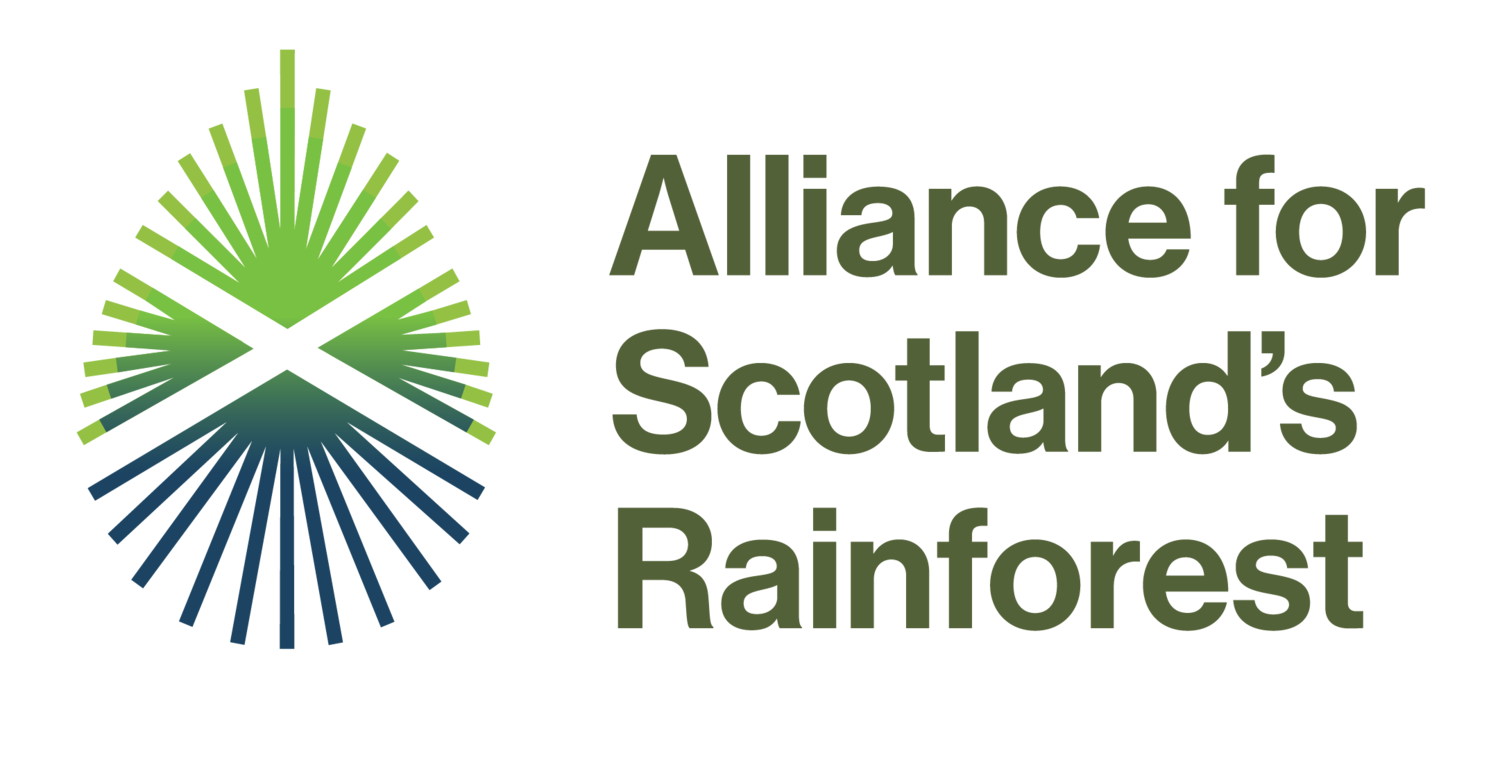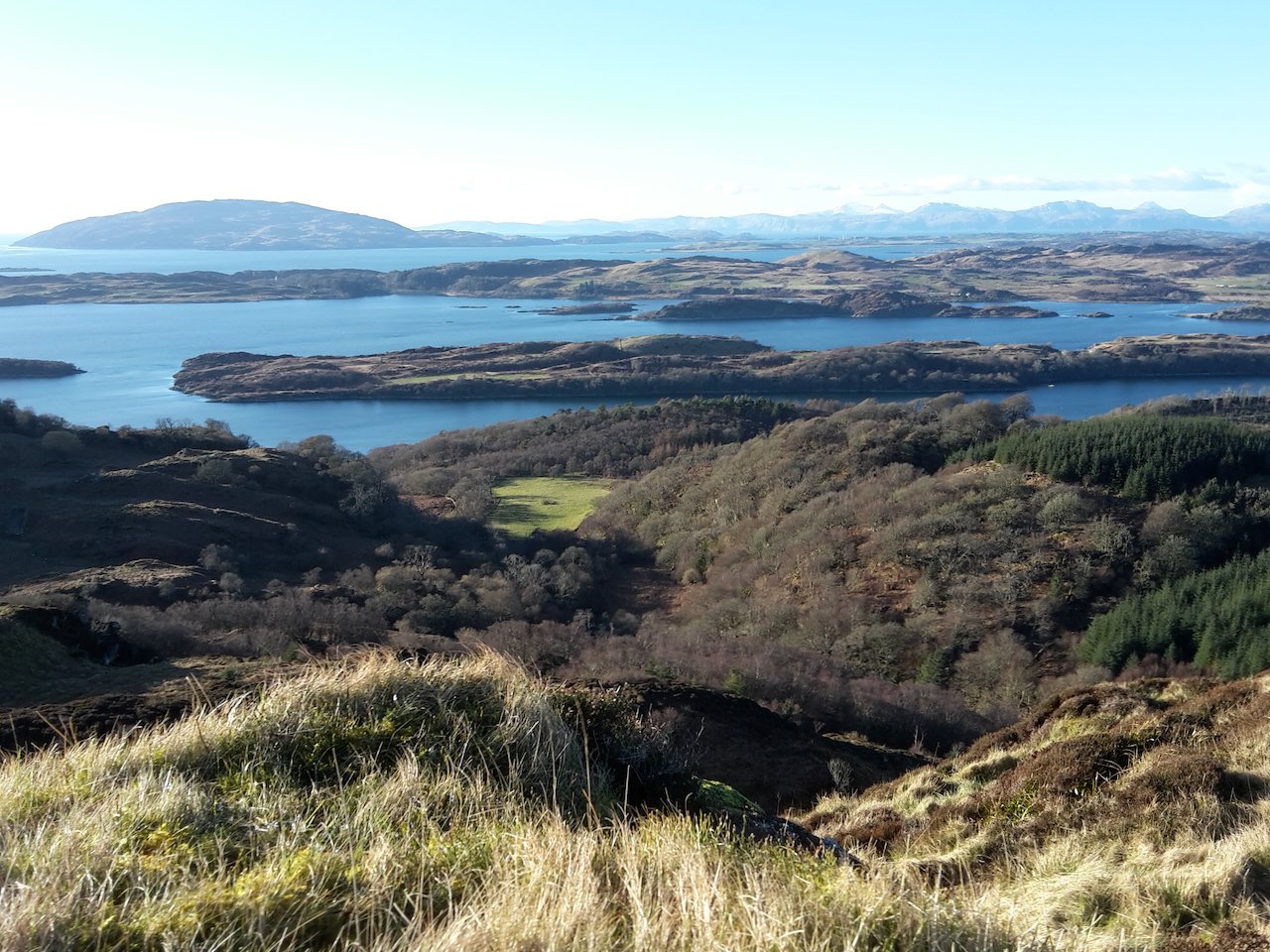Regenerating Craignish rainforest
Nestled on the west coast of Scotland, the Craignish peninsula is a stunning landscape rich in cultural heritage and biological diversity. It is home to some of the last remaining fragments of Scotland’s ancient rainforest, with abundant lichens and mosses unique to this habitat.
Sadly, as in so many parts of Scotland, the rainforest on Craignish is threatened by overgrazing by an increasing population of wild deer, and the spread of non-native species. It is in gradual decline as old trees die in the absence of a new generation to take their place. Nearly two thirds of Craignish’s 220 ha of rainforest is in moderate or poor condition and likely to deteriorate further without action. These pressures also damage peatlands, wetlands and grasslands on the peninsula and so compromise Craignish’s intricate, connected mosaic of habitats.
Project aims
The Regenerating Craignish Rainforest Project aims to build on rainforest restoration work across the country by members of the local community to halt habitat loss, rejuvenate the rainforest and create new opportunities for local employment and skills at a landscape-scale.
A year-long development phase funded through the Nature Restoration Fund was completed in 2024. This has provided detailed recommendations for how to realise the project’s aims. We are now seeking funding to deliver the following crucial actions:
Deer numbers across the peninsula will be reduced to a level where more palatable young trees are able to regenerate. This will be done by professional stalkers and members of the local community trained through this project to reduce and maintain numbers in line with a sustainable deer management plan. It will help restore balance, creating healthier ecosystems and supporting local economic opportunities through sustainable venison production.
Livestock grazing will be managed through stock fencing and “no fence” cattle collars. This will allow the location, amount and timing of grazing to be managed improve the conditions necessary for rainforest to regenerate in specific targeted areas.
The Invasive species Rhododendron ponticum will be eradicated from the peninsula providing training and jobs for local people and eliminating one of the most pernicious threats to Scotland’s rainforests. Craignish is surrounded by sea on three sides meaning the opportunity for re-establishment is limited and can be repelled by a motivated and trained community.
New native woodland will be created through natural regeneration in areas around rainforest fragments and by tree planting in areas isolated from existing woodland to expand woodland cover across the peninsula.
Woodland connectivity will be further increased by planting hedgerows between areas of woodland to reduce fragmentation and enable the migration of woodland species.
Restoring the rainforest is not just about trees, it’s about people. This project will create jobs, build skills, and connect with nature in a meaningful way. Through school programmes, training courses, and volunteering, we will empower interested members of the community to become active stewards of the land, ensuring a sustainable future for Craignish.
Project Partners
Woodland Trust Scotland and Native Woods Cooperative are leading this ambitious project, working with a wide range of land occupiers to explore the best way to tackle this complicated task. From large private estates to individual households, landownership across the peninsula is highly complex, and engagement with all parties will be key to the project’s success. The project will involve 12 major landholdings (>50ha) and the communities of Ardfern and Croabh Haven (approximately 250 households).
Funding requirement
In total it is estimated that £1.5million will be required to deliver all of the recommended actions. These have been divided into phases, and we are currently seeking £150,000 to complete phase one of deer management and rhododendron control.
Contact
Angus Bevan, Native Woods Cooperative
Email: angus_bevan@yahoo.com



